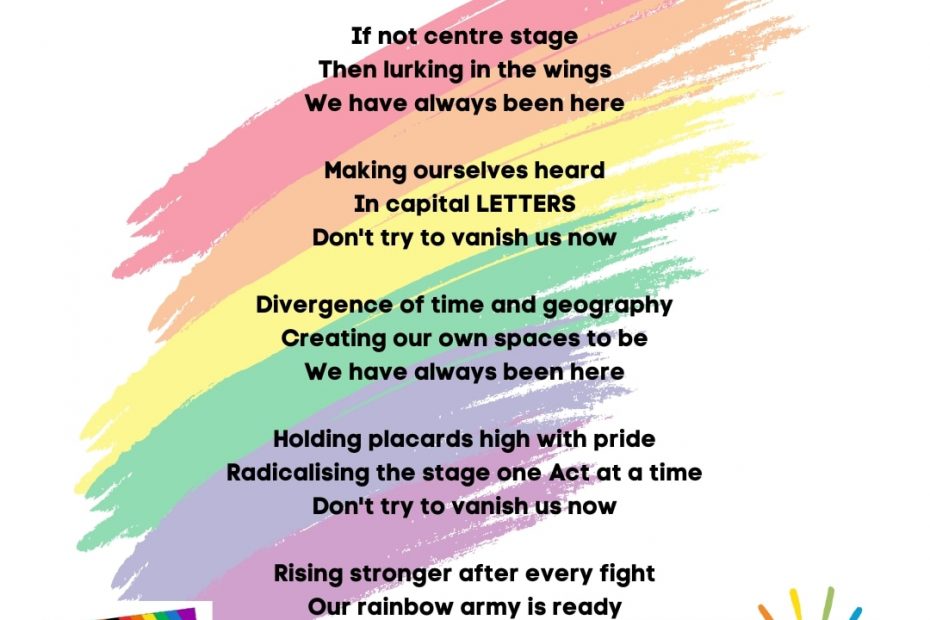Something I notice a lot, and which I, personally, see as one of the main reasons LGBT+ History Month is most needed is because many people seem to think that LGBTQIA+ identities and experiences are some newfangled idea they need to put a lot of effort into understanding, when this is simply not true. LGBTQIA+ people have always been here, and have been recognised by different cultures throughout history.
The reason many people think like this about the LGBT+ community is because we have largely remained unseen and unheard due to societal and religious pressures and fear of persecution for not conforming to an arbitrarily decided cultural ‘norm.’ Another reason LGBT+ History Month is vital is because many people seem to think the LGBT+ community have an ‘agenda.’ I think most of us just want to be able to exist safely as our authentic selves, to be allowed to contribute to society, and to have those contributions valued.
The fact that campaigning for basic rights and equality is seen as an agenda is very worrying. Having lived these experiences of marginalisation, discrimination, and threat of persecution, myself, I feel very passionate about firstly, creating safe spaces where people can be their authentic selves, away from minority stress, and secondly, dismantling the systems which create and perpetuate marginalisation (more below) ~ or at the very least empower marginalised people to navigate them.
I set up The Intersection to meet these objectives. We are at the beginning of this journey, just starting to set up at the end of last year, so our offering for LGBT+ History Month this year is small, by way of a poem I wrote, hopefully encapsulating the above. We will keep building, and have grand plans for next year. To me, LGBT+ History Month is all about looking back, recognising we have always been here, acknowedging and holding gratitude for the battles our ancestors have won to allow us to exist, and then looking forward to the work we have left to do, and how we can approach and contribute to this ourselves.
Minority groups and others on the fringes of society are often marginalised; unable to access or take opportunities available to the majority, and unable to communicate their needs and issues important to them. In short, the majority holds all the social power, often making decisions (often through systems) to the detriment and further marginalisation of the minority, pushing them even further towards the periphery of society, thus silencing their voices even more, in a vicious cycle of exclusion. If you take a person who has a marginalised identity (such as being LGBT+), they face difficulty. As soon as you add another marginalised aspect of their identity into the mix (such as having a disability, or being a person of colour), the same impact of marginalisation is exacerbated. This is compounded when one or more of that person’s identities is marginalised or seen as controversial within the community of the other one. There are examples of this within the LGBT+ community even without the secondary/multiple marginalisation.
We have work to do within our own community. An overwhelming sense of othered-ness can feel so, so, lonely. This is where The Intersection focuses its work ~ on supporting people facing multiple marginalisation, by creating safe spaces for positive wellness, which honour all aspects of a person’s identity and experience. You can find out more about us at www.theintersection.org.uk

